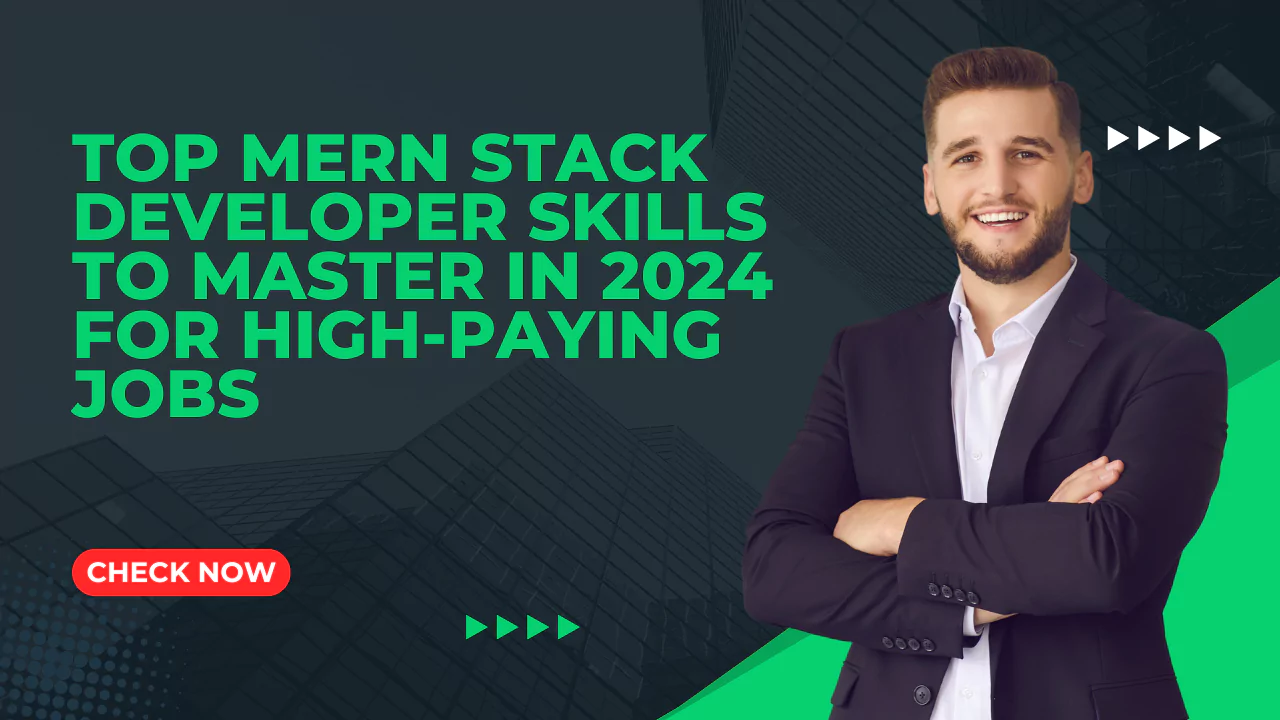The tech world is evolving rapidly, and the demand for skilled full-stack developers, especially MERN stack developers, is at an all-time high. As businesses aim to streamline their web applications, mastering the MERN stack (MongoDB, Express.js, React, Node.js) becomes crucial for anyone looking to land high-paying jobs in the development field. In this comprehensive guide, we break down the essential skills you need to become a successful MERN stack developer in 2024.
What is the MERN Stack?
The MERN stack is a collection of four powerful technologies that enable developers to build full-stack web applications using JavaScript throughout the development process. Each technology plays a critical role:
- MongoDB: A NoSQL database used to store and retrieve data in JSON-like documents.
- Express.js: A web application framework for Node.js that handles server-side logic and APIs.
- React: A JavaScript library for building dynamic, interactive user interfaces.
- Node.js: A server-side JavaScript runtime for executing server-side scripts and building scalable applications.
Together, these tools enable developers to manage both the front-end and back-end development of web applications seamlessly.

Top Skills for MERN Stack Developers in 2024
To stand out as a MERN stack developer, mastering both front-end and back-end technologies is essential. Below are the key skills you should focus on:
1. JavaScript Proficiency
JavaScript is the foundation of the entire MERN stack. Mastering it will allow you to build dynamic websites and interactive web applications. Key areas include:
- DOM manipulation for responsive user experiences.
- JSON for data exchange between client and server.
2. Mastering React for Front-End Development
React is at the heart of the MERN stack’s front-end. As a MERN developer, you’ll need to:
- Build reusable components to enhance efficiency.
- Manage state effectively using tools like React hooks and Redux.
- Create responsive, dynamic UIs that ensure seamless user experiences
3. Node.js for Backend Development
Node.js allows developers to execute JavaScript on the server, making it integral to building fast, scalable back-end systems. To excel in Node.js, you need to understand:
- Server-side logic and routing.
- Handling asynchronous tasks and callbacks for smooth performance.
4. Express.js and RESTful APIs
Express.js simplifies the creation of server-side logic and APIs, allowing you to connect your front-end with your back-end. Key concepts include:
- Developing RESTful APIs for efficient data communication.
- Error handling and middleware implementation for smoother app performance.
5. MongoDB and Database Management
MongoDB is a NoSQL database where data is stored in flexible, JSON-like documents. A MERN developer should:
- Be proficient in querying databases and managing data models.
- Understand how to integrate MongoDB with Node.js for efficient data storage and retrieval
6. Version Control with Git
Git is essential for tracking changes in code and collaborating with other developers. Every MERN stack developer should:
- Use Git for version control, allowing them to work on large-scale projects with multiple developers.
- Manage branches, commits, and merges to streamline the development process.
7. Deployment and Hosting
Once the application is built, deploying it efficiently is crucial. Familiarity with platforms like Heroku, Netlify, and AWS will allow you to:
- Deploy your application to the cloud.
- Monitor and troubleshoot post-launch issues.

Additional Skills to Boost Your MERN Stack Career
To go beyond the basics and stand out, consider mastering the following technologies and practices:
- GraphQL: An alternative to REST APIs, GraphQL allows you to retrieve data more efficiently from servers.
- TypeScript: A superset of JavaScript, TypeScript helps developers avoid errors by adding static types to their code.
- Docker: Containerizing applications with Docker ensures they run smoothly across different environments.
- React Native: This framework allows developers to build mobile applications using their existing JavaScript and React knowledge
Career Growth and Salary Insights for MERN Stack Developers
The demand for full-stack developers, particularly those skilled in the MERN stack, continues to grow. According to industry reports, full-stack developers command salaries ranging from $80,000 to $130,000 annually, with MERN stack developers being highly sought after due to the efficiency and flexibility of this tech stack.
To capitalize on this demand, focus on building a strong portfolio that showcases your projects. Practical experience with real-world applications is often more valuable than formal education alone.

How to Build and Showcase Your MERN Stack Skills
Building projects is the best way to hone your MERN stack skills and impress potential employers. Here are some ways to get started:
- Personal Projects: Create applications using React, Node.js, Express, and MongoDB. Start with simple projects like a to-do app and progress to more complex applications.
- Contribute to Open-Source Projects: Joining the developer community through open-source contributions will help you learn from others and improve your problem-solving skills.
- Build a Portfolio: Showcase your work on platforms like GitHub, making sure to highlight the different technologies you’ve used.
FAQs on MERN Stack Developer Skills
What is the most important skill for MERN stack developers?
Mastering JavaScript is the foundation, as it is used in both front-end and back-end development.
How long does it take to learn the MERN stack?
With dedication, it can take 3-6 months to become proficient in the MERN stack, depending on prior knowledge and practice.
Is the MERN stack in demand in 2024?
Yes, the MERN stack continues to grow in popularity due to its efficiency, scalability, and full-stack JavaScript capabilities.






